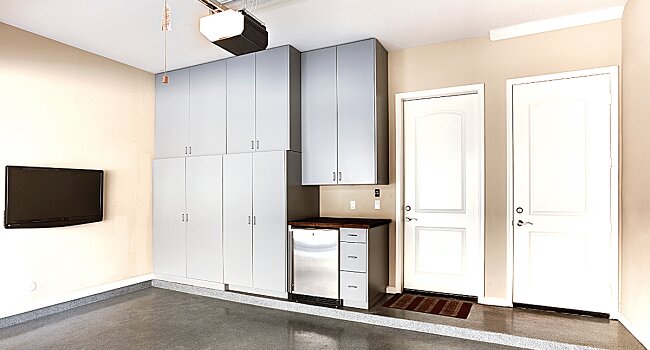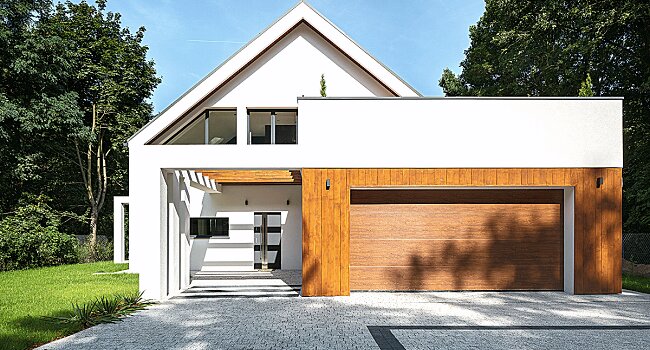The garage space on your property is often the focus of changing style trends amongst house hunters. Some want the garage for multiple cars, others want to convert it and some don’t want a garage at all.
As a homeowner, the best thing you can do is to use this space however you wish. There is some merit in considering what conversions and remodels will do to your property’s values and desirability. Having said this, the most important focus should be on how you enjoy your home, especially if that means maximizing the space that you have where the garage sits.
Planning a garage conversion is exciting and presents a world of possibilities. Given the size of this space, it does lend itself to possibilities such as additional bedrooms, living areas, and snug spaces that your property doesn’t already have.
Before you get too excited about your garage conversion, it is important that you have first checked the legality of your plans. There could be various legal requirements for your garage conversion, depending on where you live. Let’s take a look at what you’ll need to check before you break ground.
Restrictive Clauses
A restrictive clause or covenant is a legal clause that is built into the Title Register deed. The purpose of these clauses is to forbid particular actions on the property or a plot of land. This is the first place that you need to check before you get started on your garage conversion.
If there is a clause in place, it may state that the garage may not be used for any other purpose than to store vehicles. Alternatively, it may suggest that you cannot increase the living capacity on the property. This is the first place to begin when checking if your garage conversion is allowed.

If you do find that there is a restrictive clause in place, you can modify it or be granted permission to go against it, but this will be a lengthy process. You will need to raise your concerns before a tribunal to get permission for the conversion.
There are several options you may have, that can work around any clauses in place. If you have encountered a restrictive clause, speak with an architect to find out what you may be able to do regarding design, that won’t break the clause.
Planning Permission
Once you have made sure that there are no restriction clauses in place, or at least any that will prevent you from converting your garage, you need to check local planning laws. These will differ both by state and potentially even by locality, so be sure to do your due diligence. For example, the city of Los Angeles requires certain setback, parking, and size requirements for ADU garage conversions.
For the most part, planning permission is designed to prevent you from causing issues with your neighbors or ruining the aesthetic of the area. As such, garage conversions usually don’t cause a problem, but you always need to check first.
Penalties for not getting planning permission can be very steep, and potentially costly too. The only time you may have issues around planning permission is if you plan to extend the size of your existing garage.
Building Regulations
Finally, if your garage is going to be converted into a habitable space, there are governmental regulations that you will have to follow. In most instances, there isn’t permission to seek here, but rather to show that you have not cut any corners when designing this living space.
Construction rules need to be followed when you increase living space in the home, especially in a separate dwelling like a garage. For example, you need to follow the rules around drainage and plumbing, as well as electrics. These rules are in place to both prevent any accidents in the converted garage, and to ensure the safety of your neighbors.
You may also have to get the green light from local authorities if you have a listed building, which is likely to have many restrictions in place when it comes to making changes. Alternatively, if you are adding insulation or changing the parking situation as part of your garage conversion, the local building control officer will need to know.

Before you get started on your garage conversion, speak to your local planning authority and schedule an appointment with your local building control officer. Ultimately, it is important that everything is done above board, and discussed before you commence this conversion project. Failure to do so could result in fines or even forced structural changes.
If you are working with a professional remodeling company, ask them about the regulations first. You should also check this out on your own, and you’ll find all local and state information online.





























